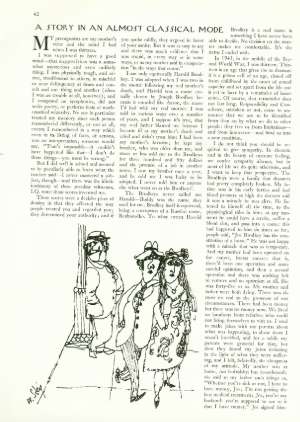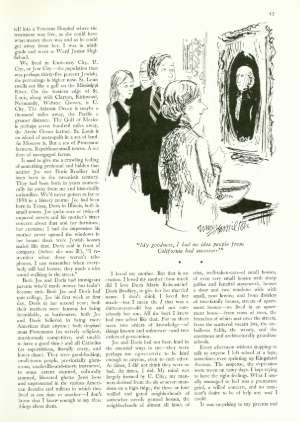The New Yorker, September 17, 1973 P. 42
Harold Brodkey reminisces about his dying mother & his state of mind when he was 13. The family was Jewish. It was 1943, in St. Louis, & Doris Brodkey, his adoptive mother, was suffering from cancer. Both her breasts had been removed, her chest was covered with radium burns, & her husband Joe had entered a V.A. Hospital so that she could have more money & he could get away from her. Doris had no friends, just the boy, Buddy (Harold). She screamed that he was cold to her, that he didn't understand her. The situation was unbearable until he began imagining what it was like to be his mother. It was unnerving--when he was Doris, he hadn't the energy to die; too many things had gone wrong; he was too angry--he could do nothing but scream. He determined that she would have to become unselfish; only that way could she ease her pain. As a result she became almost good-tempered; she had new & admiring friends. When he was 16, she insisted he enter Harvard. There he began to forget her, but 3 months after he left, the cancer recurred. In May he went to her bedside; she told him that she appreciated what he'd done for her, & would he forgive her? She thought he was happy & had survived his childhood; he wanted her to think that; but to forgive her would have first meant to remember. "You were a good mother," he said. She said he didn't face things as well as he used to; she loved him & was sorry. After she died, he had a nervous breakdown but got over it. He was never to be certain he was masculine to the proper degree again--he always thought he knew what women felt.

